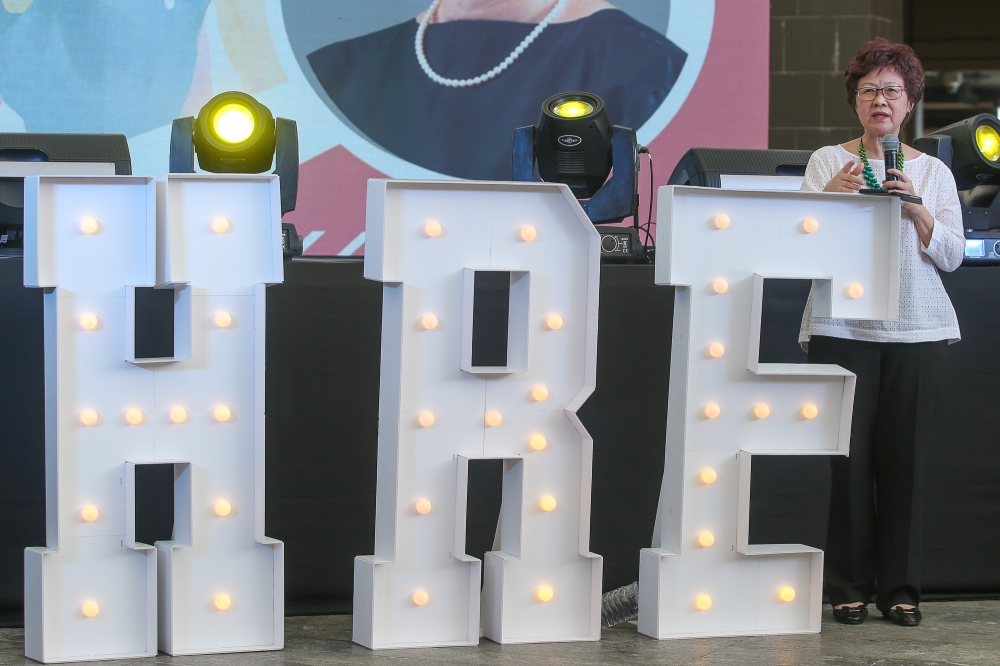Published date
Written by
KUALA LUMPUR, Dec 8 — The Human Rights Festival 2024 in Kuala Lumpur saw nearly 50 non-governmental organisations (NGOs) gather to celebrate and raise awareness about their human rights work, with hundreds in attendance.
Larissa Ann Louis, co-chair of the Bar Council’s Human Rights Committee, said the festival, now in its third edition, was initiated to “celebrate the good that Malaysia has done in terms of human rights.”
“But today we want to focus on the good and celebrate everything that each one of you have done, are doing and will continue to do,” she said while acknowledging the common tendency to focus on areas for improvement.
At the festival’s opening at MyTOWN Shopping Centre here, Larissa outlined two key goals of the event: empowering NGOs for their ongoing work and encouraging the public to engage with human rights, especially to stand up for those without access to justice.
Cassandra Nicole Thomazios, co-chair of the Bar Council’s Human Rights Committee, also introduced a “pre-launch” of the pro bono hub initiative, designed to connect NGOs with lawyers offering free legal services.
“The initiative aims to bridge the gap between legal expertise and organisations in need, empowering NGOs to better serve communities while providing law firms with meaningful opportunities to give back,” she said.
While the pro bono hub is not yet officially launched, Thomazios encouraged NGOs, lawyers, and law firms present at the festival to sign up for the initiative.
“I believe you do not need formal education or legal training to be a human rights advocate, all you need is a sincere heart and unwavering determination to keep your cause upright,” Malaysian Bar president Mohamad Ezri Abdul Wahab said when addressing the turnout.

Asian International Arbitration Centre director Datuk Mary Lim, who launched the festival, said the event was an opportunity to honor those who have worked tirelessly to advance human rights in Malaysia, allowing citizens to “stand tall and stand dignified because there is justice in this country.”
She acknowledged the ongoing journey toward realizing fundamental rights, highlighting the importance of values like justice, equality, and protection for all, which unite society.
Lim, a retired Federal Court judge, also noted the complex responsibilities that judges carry, stressing the need for NGOs to support the court system.
“So you NGOs, do step up and offer to be friends of the court, but the judges will always have to try and trudge on and try to find solutions so that rights make us more human, as opposed to not human, so that our lives are more meaningful and of value,” she said.
Highlights of the festival included dance performances by the Mon Refugee Learning Centre and Persatuan Pekerja Rumah Tangga Indonesia Migran, a poetry recital by two siblings affected by Malaysia’s citizenship laws, and a documentary on strategic litigation by the Malaysian Centre for Constitutionalism and Human Rights.
Human rights lawyer New Sin Yew raised concerns about the government’s proposed amendments to Section 233 of the Communications and Multimedia Act 1998.
This provision, which criminalises posting offensive remarks online with “intent to annoy, abuse, threaten or harass,” has been used against human rights defenders, opposition politicians, and activists.
New highlighted the planned amendment seeks harsher penalties for the offence, and warned that the new definition of “grossly offensive” remarks could lead to arbitrary government action.
The amendments are scheduled for a second reading in the Dewan Rakyat tomorrow.

Reflecting on how the festival had grown, Abang Mohd Iwawan Abg Narawi @ Abg Nawawi, deputy chair of the Bar Council’s Human Rights Committee, remembered that the first edition in 2018 hosted only about 20 NGOs, compared to nearly 50 this year.
The participating organisations at this year’s festival covered a wide range of causes, including empowering women and girls, gender-based violence awareness, refugee rights, statelessness, children’s rights, and anti-human trafficking efforts, among others.
Other important issues highlighted included ending corruption, raising awareness for cerebral palsy and autism, legal aid, anti-death penalty campaigns, freedom of expression, wildlife conservation, and animal welfare.
According to the organisers, more than 500 people attended the festival by 5.30pm. The event was set to run until 8pm.
